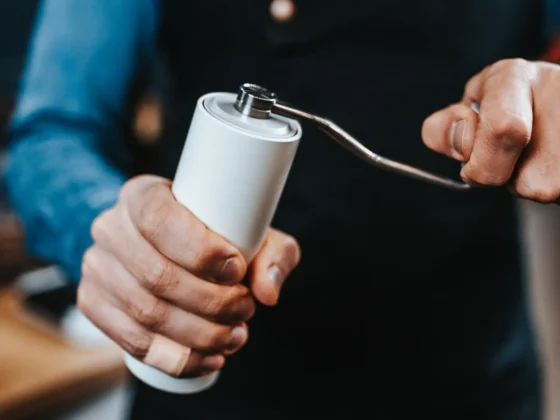Step into the rich and inviting world of Polish coffee, where every cup tells a story steeped in history, tradition, and a sense of community. This ultimate guide to Polish coffee will take you on a captivating journey, exploring the deep-rooted coffee culture that has evolved over centuries in Poland. From the moment coffee was introduced to this vibrant country, it has been embraced and cherished, shaping social interactions and leaving an indelible mark on the nation’s identity.
In this comprehensive guide, we will unravel the fascinating history of coffee in Poland, delving into the role of coffee houses in society and the evolution of Polish coffee culture over time. We will also introduce you to traditional Polish brewing techniques and the unique flavors that define this exquisite beverage. Furthermore, you will gain insights into the social aspects of Polish coffee culture, including the art of slow coffee and the thriving café scene.
As you immerse yourself in the Polish coffee experience, you will come to understand how Poland has made significant contributions to the global coffee community, from its participation in coffee festivals and competitions to its growing specialty coffee movement. So, grab a cup of your favorite brew and join us as we uncover the enchanting world of Polish coffee, where tradition, techniques, and tastes blend harmoniously to create an unforgettable experience.
Polish Coffee: Key Takeaways
- Polish coffee culture is a unique blend of tradition, innovation, and community, reflecting the nation’s rich history and its openness to new ideas and techniques.
- Traditional brewing methods like the Turkish-influenced cezve and the classic kawiarka are still cherished and widely practiced, contributing to the diverse range of flavors and experiences that Polish coffee has to offer.
- The social aspects of Polish coffee culture, such as the art of slow coffee and the importance of connection through conversation, play a significant role in fostering a sense of community and belonging.
- Poland’s active participation in global coffee festivals, competitions, and the specialty coffee movement showcases the country’s dedication to preserving and evolving its coffee culture while making a mark on the international stage.
A Surprising History: Coffee in Poland
Poland’s coffee history is deeply rooted in European café culture, with King Jan III Sobieski being a key figure in its introduction. Legend speaks of Jerzy Franciszek Kulczycki rescuing many sacks of coffee beans during the 1683 Siege of Vienna. Initially, Poles imported beans from Turkey, meeting the beverage with suspicion due to its dark color and questions about its compatibility with Polish Lent practices. However, attitudes changed when imports began from the Netherlands. Kulczycki, a 17th-century Polish spy, not only established one of Vienna’s first cafés, but he also introduced milk to coffee, making a significant contribution to café culture. The shift to importing coffee from the Netherlands eventually transformed Polish coffee culture.
Mastering Turkish Coffee: An 18th-Century Polish Perspective
In the 18th century, Jesuit and scientist Tadeusz Krusiński penned the first Polish monograph on coffee, documenting Turkish coffee customs in “Pragmatographia de Legitymo Usu Ambrozyi Tureckiei” translates to (The Proper Way of Taking Turkish Coffee). Despite prevailing opposition to the new beverage, Krusiński’s book detailed coffee’s effects on the body, brewing principles, taste profiles, and its cultural importance across all social classes. His work catered to all readers, educating them on coffee culture, history, brewing methods, and etiquette. While some of his ideas, like the cultural significance of coffee, remain relevant, others, like using deer horn powder to settle coffee, have faded. Nevertheless, Krusiński’s work crucially shaped Poland’s coffee culture, promoting its widespread adoption.
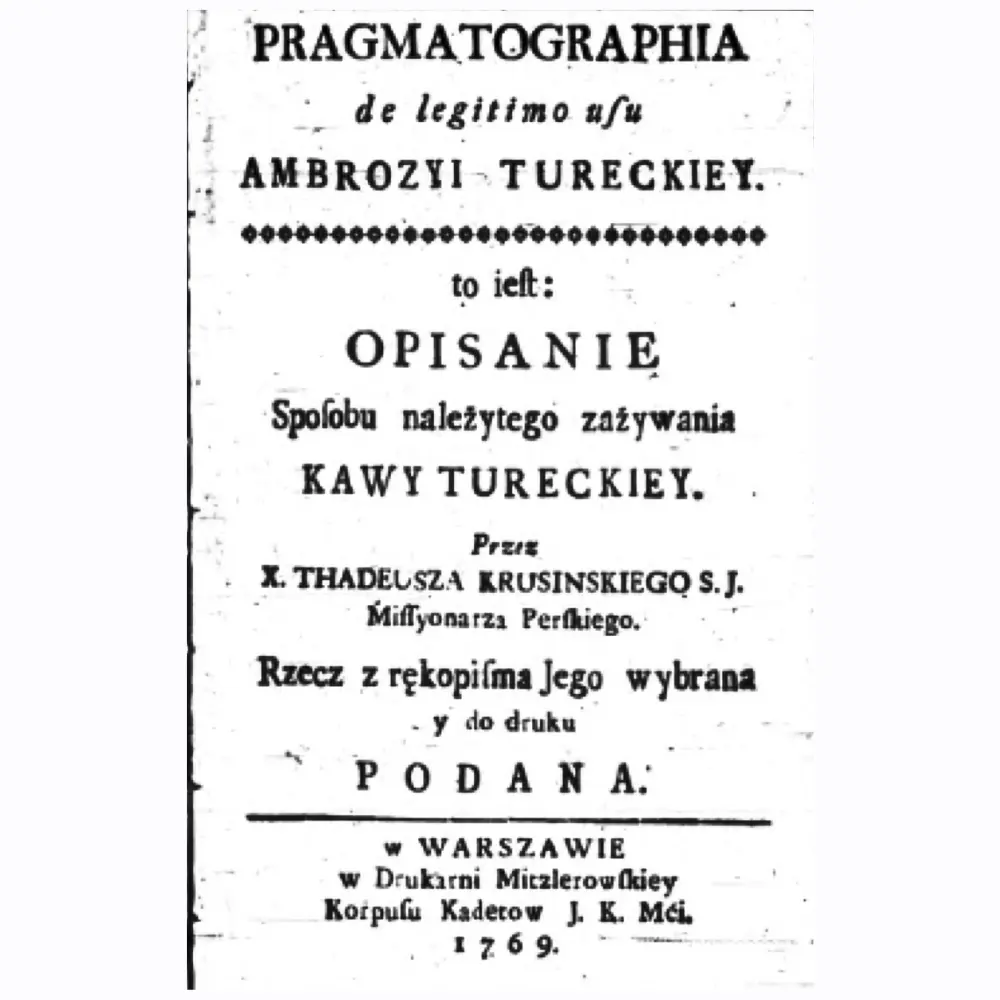
Coffee and the Decline of Alcohol Consumption
Józef Minasowicz, Krusiński’s publisher, significantly helped propagate coffee culture in Poland, publishing numerous works advocating for coffee consumption. The 18th century saw growing popularity for coffee, dubbed the “Turkish renegade,” which surprisingly led to reduced alcohol intake among the wealthy. Coffee, specifically Turkish de Mocca, imported via various channels, became a recommended alternative to vodka or wine post-dinner. However, high coffee import duties caused an uproar among coffee supporters who saw them as a menace to coffee habits, coffeehouse survival, and national alcohol abstinence. Minasowicz and Krusiński were key figures in a movement promoting coffee’s cultural significance and educating Poles on coffee culture, which laid the foundation for Poland’s enduring coffee tradition.
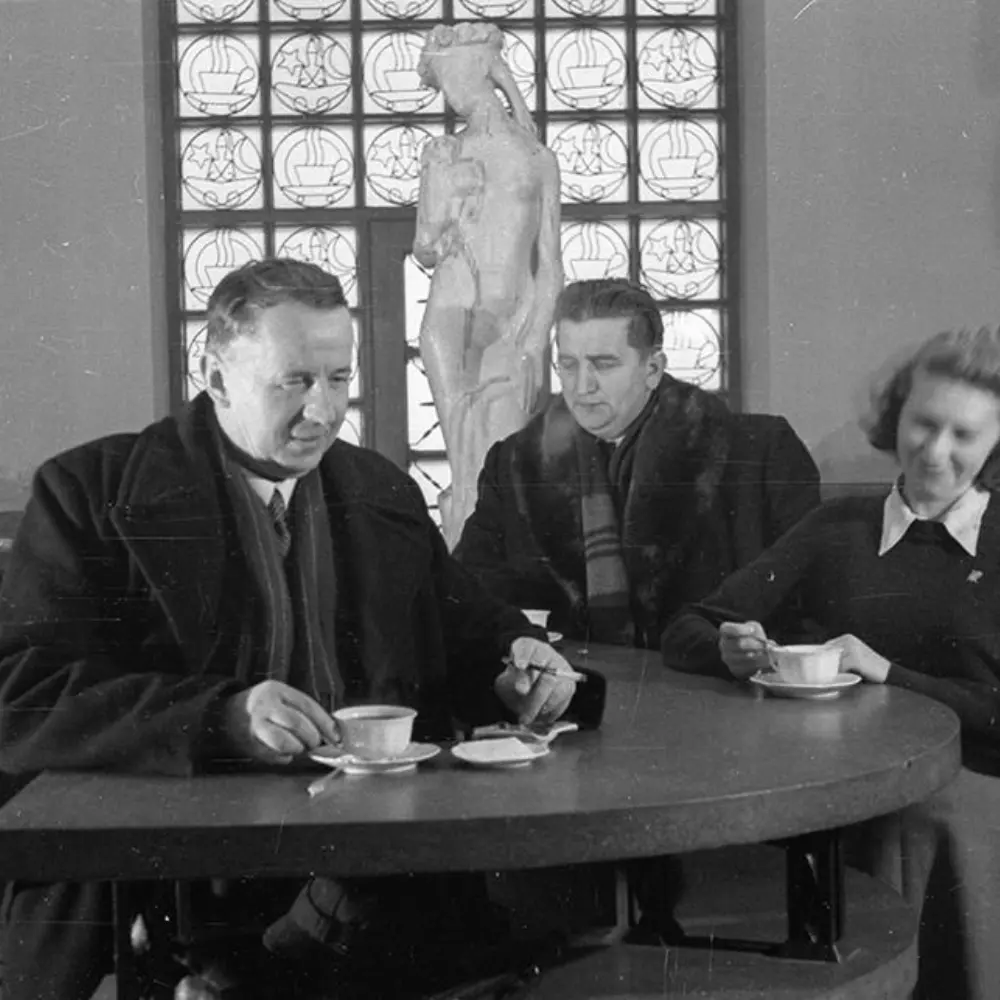
The Polish Twist on Coffee
Distinct from Eastern traditions, Polish-style coffee is typically strong and clear, often served with milk or heavy cream. Noted by Ignacy Krasicki, this unique style was something even notable figures like Achilles and Caesar never experienced. Reverend Jan Kitowicz, in “Opis Obyczajów” translates to (Description of Customs), observed that coffee, typically enjoyed first in bed with sugar and cream, had become popular among the wealthy. Additional servings were common post-lunch and dinner. Particularly among women, the beverage replaced the early-day beer soup mix, often supplemented with vodka, promoting a more sophisticated lifestyle. Polish-style coffee, now integral to daily life and social events, continues to be a celebrated cultural hallmark.
Creative Coffee Alternatives in Poland
As coffee grew popular in Poland, it permeated all social strata, with coffee houses emerging across towns and cities. Even artisans and vendors sought to enjoy this beverage, leading wealthier households to spend a significant portion of their alcohol budget on coffee. Less affluent individuals also engaged in the coffee culture, often using substitutes like roasted wheat or peas to mimic the flavor. A household without coffee was considered unsophisticated as per Jan Kitowicz’s “Opis Obyczajów.”

Following the 1795 Polish translation of Pierre Buchoz’s book on coffee, numerous coffee-like drink recipes, using roasted rye, broad beans, chicory roots, sweet and regular potatoes, linden seeds, and even acorns, featured in 18th-century calendars and household guides. Acorns, as noted in “Przepisy Rolnictwa i Ogrodnictwa” which translates to (Recipes of Horticulture and Agriculture), produced a coffee-like drink when combined with a good cream. These substitutes facilitated the spread of coffee culture among those who couldn’t afford traditional coffee, making it a daily staple for all.
The Art of Polish Coffee-Making
In the 19th century, coffee was a key part of Polish life, often spiked with alcohol in taverns, and was the first meal of the day, brought to the beds of masters by servants. Skilled servants in affluent households were specifically tasked with coffee preparation, a role so crucial it was detailed in Adam Mickiewicz’s “Pan Tadeusz”.
Coffee was typically home-roasted, as unroasted beans were primarily sold until the late 19th century, boosting cafés’ popularity, originally termed kafehauze. Notable ones include Antoni Momber’s in Gdańsk and Henri Duval’s in Warsaw, which opened in the early 18th century. By the mid-19th century, Warsaw housed around 180 cafés, and Kraków, over 50.

Coffee was brewed without specific equipment, pouring boiling water over ground coffee in a sieve, resulting in a less aromatic drink with coffee grounds often in the mix. Later, Carlsbad coffee machines, complete with a coffee container and a fine sieve, were suggested.
Women in respectable households usually prepared coffee, taking pride in their skill to make the perfect cup, signifying not only the importance of the beverage but also one’s social standing and cultural sophistication.
Coffee During and After German Occupation
During WWII and the German occupation, Poles resorted to ersatz coffee made from alternatives like forest-gathered acorns or roasted carrot roots. In the communist era, coffee was a luxury and often hard to come by, leading many to consume grain coffee or poor-quality “plujka.” Post the 1989 Transformation, Poland saw the first two waves of coffee culture, with the ongoing third wave centered on preserving coffee sources for an authentic experience, indicating a resurgence in Poland’s coffee-making tradition.
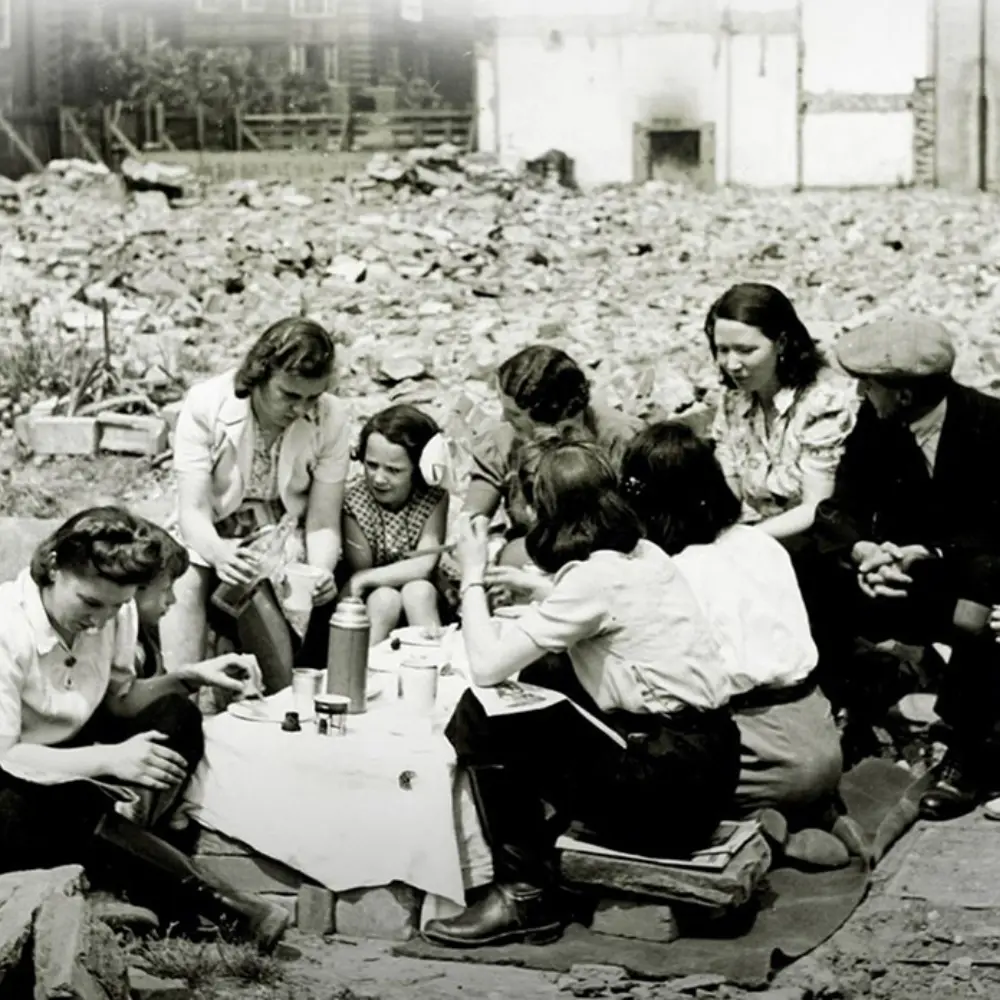
Sensorist and juror Ika Graboń highlights the importance of preserving coffee sources and curating a unique coffee-drinking experience, leading to the rise of artisanal coffee roasters, coffee shops, and festivals nationwide.
Today, coffee in Poland is more than a beverage; it’s a cultural experience. With its rich history and renewed emphasis on authenticity and quality, Poland’s coffee culture continues to flourish.
Quintessential Polish Coffee Brewing Techniques: A Glimpse into the Past
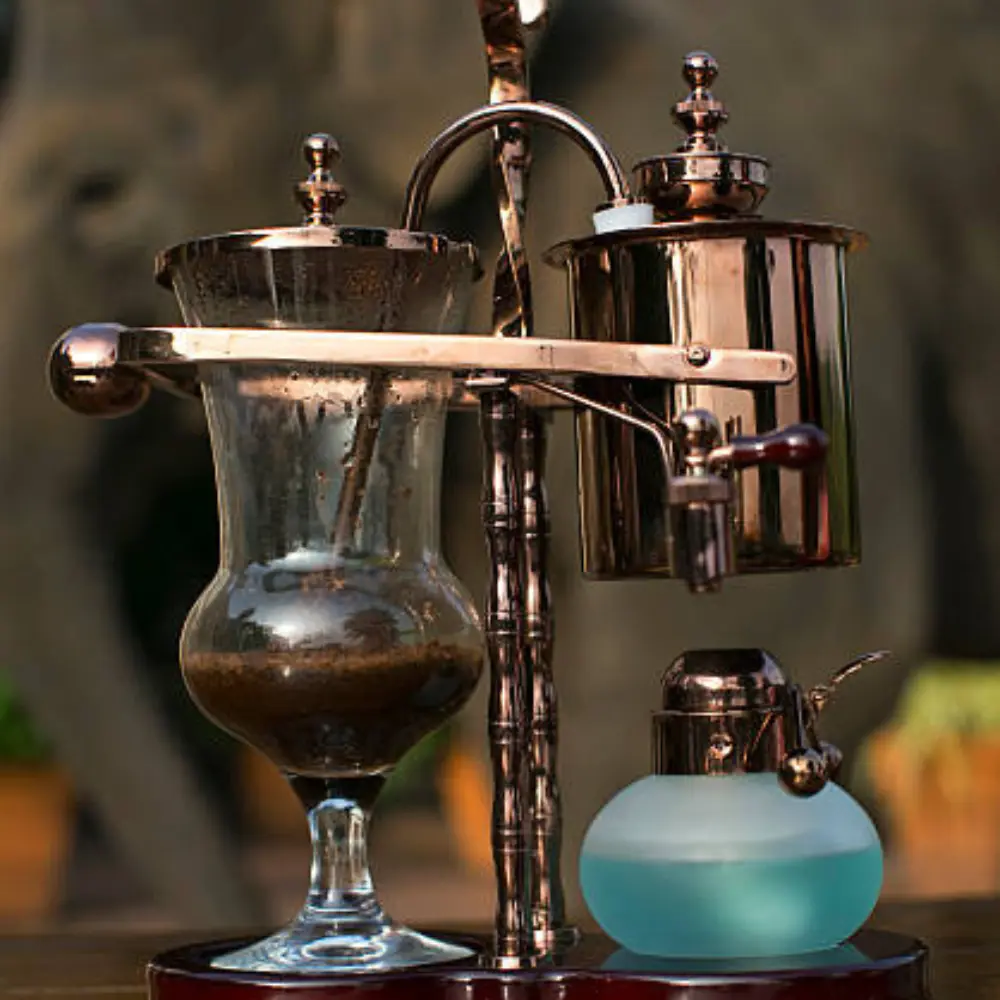
The Ottoman Legacy: The Enigmatic Cezve
The Cezve—alternatively known as ibrik, briki or Turkish coffee pot —is a diminutive, elongated-handled pot crafted from copper or brass, which first made its appearance in the Ottoman Empire. (1) This time-honored brewing technique wielded a formidable impact on the nascent Polish coffee culture and continues to be favored by a sect of ardent coffee aficionados to this day. To conjure up coffee using the venerable cezve, a blend of finely ground coffee beans, sugar, and water is amalgamated, resulting in a lavish and full-bodied concoction.

The amalgam is gently heated over a flickering, low flame, permitting the coffee grounds to descend and nestle at the pot’s base. As the liquid reaches boiling point, it spawns a dense foam that is meticulously decanted into petite demitasse cups, with the sediment left undisturbed. The outcome is a profoundly aromatic, marginally acrid coffee that encapsulates the essence of the Turkish sway on Poland’s coffee culture.
The Time-Honored Polish Approach: The Venerable Kawiarka
The kawiarka, an emblematic Polish coffee maker, is a cherished household artifact passed down through the annals of familial history. Drawing inspiration from the Italian moka pot, the kawiarka comprises two vertically aligned chambers demarcated by a filter. The bottom chamber is designated for water, while the top chamber cradles the ground coffee.
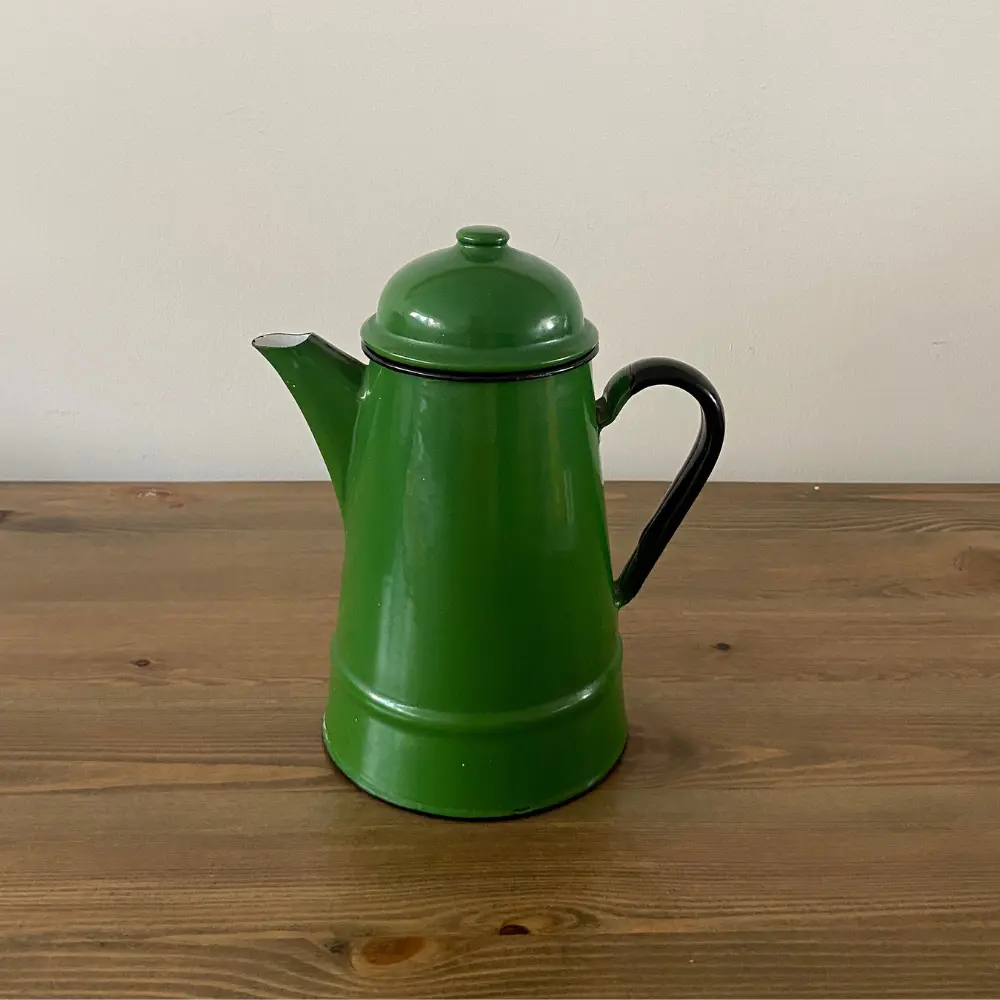
To conjure up coffee using the kawiarka, water within the lower chamber is heated until steam is birthed. The ensuing pressure compels the water to traverse the coffee grounds and ascend into the upper chamber, culminating in a robust, full-bodied brew. The final elixir is smoother and less acerbic compared to its cezve counterpart, rendering it a favored selection for daily coffee consumption among the Polish populace.
The Contemporary Flair: Drip Coffee
As Poland’s coffee culture undergoes metamorphosis and embraces contemporary inclinations, drip coffee has carved a niche among the younger demographic and specialty coffee aficionados. This brewing technique entails the cascading of hot water over medium-coarse coffee grounds nestled within a paper or metal filter. The water leisurely permeates the grounds, extracting the essence and fragrances of the coffee before trickling into a carafe or mug.
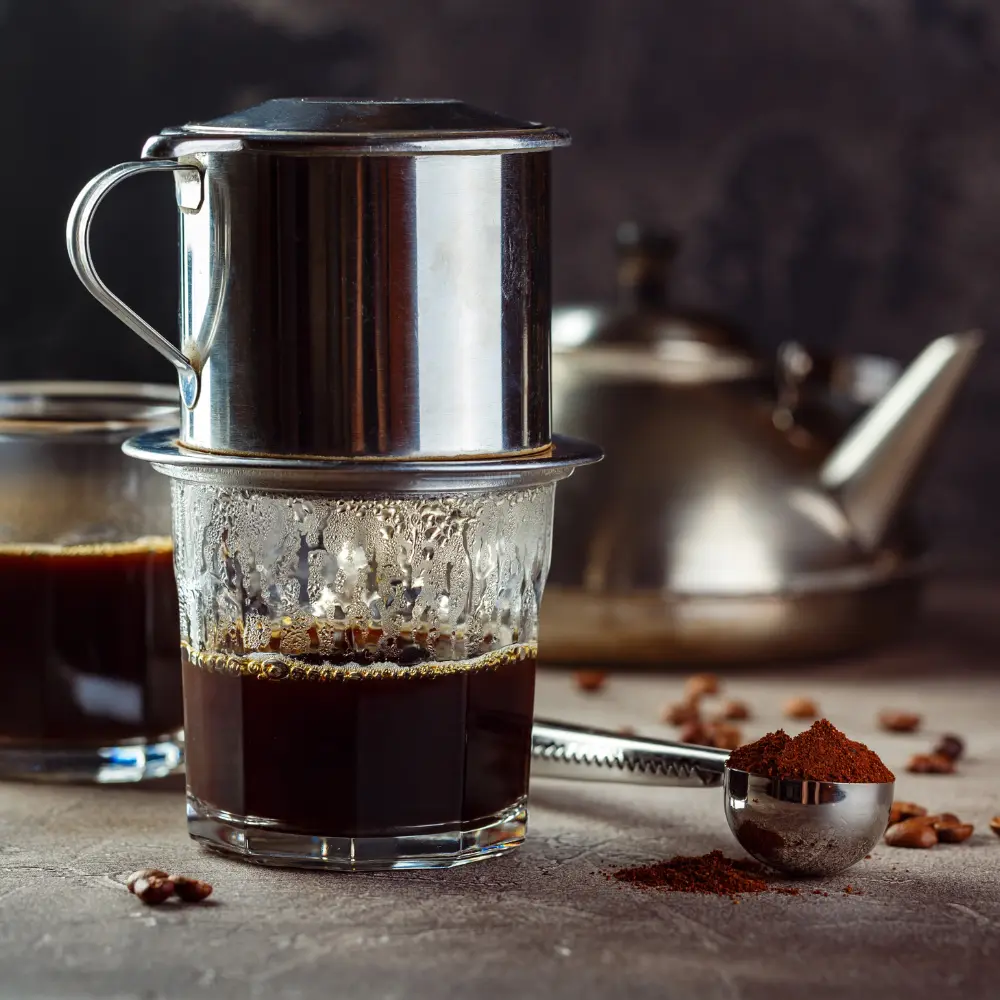
Drip coffee affords enhanced control over brewing parameters, such as water temperature, steeping duration, and coffee-to-water proportion, culminating in a more uniform and harmonious cup. The burgeoning popularity of drip coffee in Poland bears testimony to the nation’s receptiveness to innovation and its quest to discover novel methods of relishing its treasured beverage while revering its ancestral foundations.
How to Pronounce Various Coffee Terms in Poland

When exploring the coffee culture in Poland, it’s important to familiarize yourself with the pronunciation of various coffee terms. Here is a list of common coffee-related phrases and their Polish pronunciation:
- Filter Coffee – Kawa Przelewowa (kah-vah preh-zeh-leh-voh-vah)
- Take-Away Cup – Picie na Wynos (pee-chee nah vee-nos)
- Instant Coffee – Kawa Rozpuszczalna (kah-vah rohz-poo-sh-chal-nah)
- Black Coffee – Kawa Czarna (kah-vah chahr-nah)
- Espresso – Kawa Espresso (kah-vah es-preh-so)
- Cappuccino – Kawa Cappuccino (kah-vah kah-poo-chee-no)
- Coffee with Milk – Kawa z Mlekiem (kah-vah z mleh-kem)
- Decaf – Bezkofeinowa (behz-koh-fay-noh-vah)
- I Drink Coffee – Piję Kawę (pee-yeh kah-veh)
- Cold Brew Coffee – Kawa Parzona na Zimno (kah-vah par-zoh-nah nah zim-noh)
By learning the pronunciation of these coffee terms, you’ll be better equipped to communicate about coffee in Poland and appreciate the rich coffee culture the country has to offer.
Delving into Distinctive Polish Coffee Concoctions

Kawa Parzona
Kawa Parzona, or “brewed coffee,” epitomizes a traditional Polish coffee beverage crafted through the classic and revered pour-over technique. To conjure up Kawa Parzona, scalding water cascades over coarsely ground coffee beans nestled in a ceramic or glass funnel adorned with a paper or cloth filter. The brewed coffee leisurely drips into a cup or pot, ensnaring the quintessential essence of the beans.
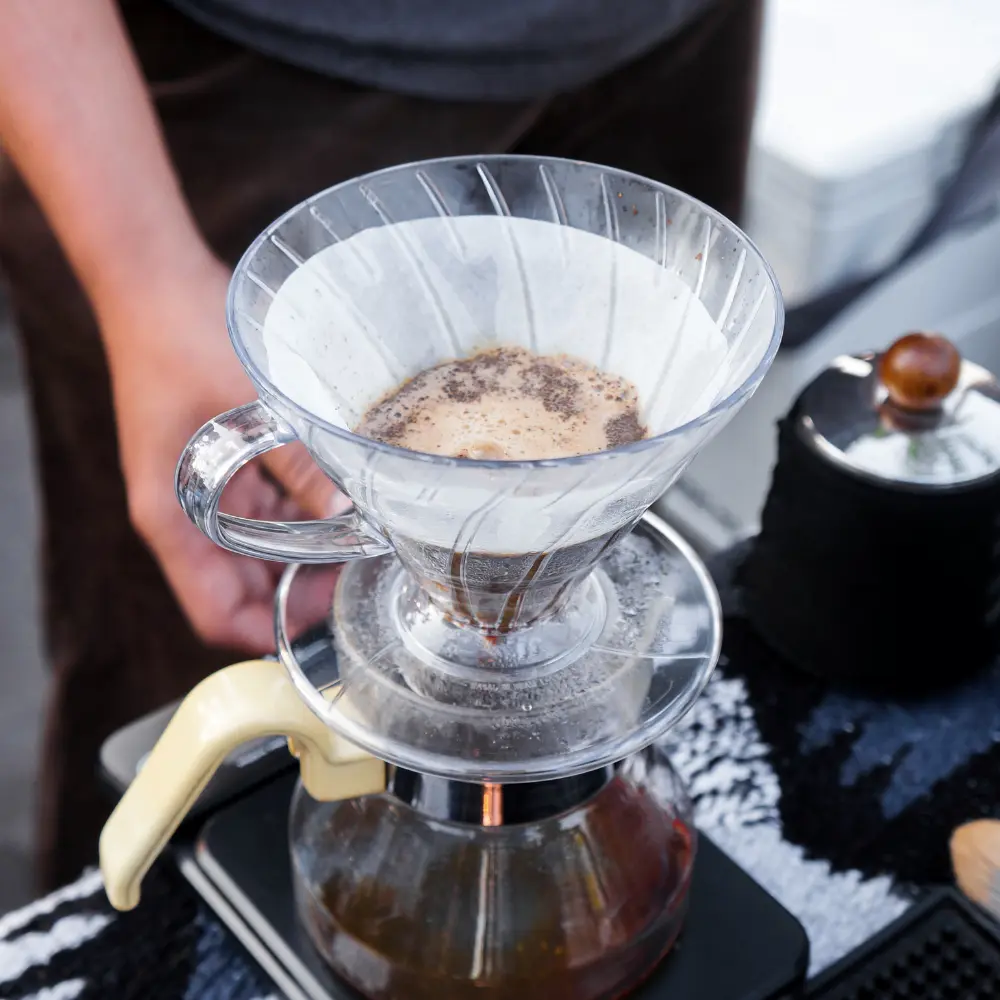
Alternatively, some individuals embrace a more rustic approach by directly blending the coffee grounds into a cup, eschewing the use of a filter altogether. These coffee enthusiasts simply allow the grounds to settle at the bottom of the cup, patiently waiting for the brewing process to complete.
Regardless of the method, the preparation of Kawa Parzona results in a pristine, velvety, and harmonious coffee imbued with a delightful aroma. Kawa Parzona has graced Polish homes for generations, frequently served alongside a sliver of cake or a platter of cookies. As the consummate accompaniment for convivial gatherings and familial celebrations, Kawa Parzona weaves a tapestry of warmth and camaraderie.
Kawa z Mlekiem
Kawa z Mlekiem, which translates to “coffee with milk,” is a cherished Polish coffee concoction relished by individuals spanning all age groups. This soothing and creamy elixir is crafted by melding freshly brewed coffee with warm milk, typically in equal measure. The milk imparts not only a silky texture to the coffee but also harmonizes its flavors, yielding a well-balanced and gratifying beverage.

Often savored at breakfast or as an afternoon revitalizer, Kawa z Mlekiem is customarily accompanied by a sweet indulgence such as a pastry or a morsel of chocolate. This delightful drink can be further tailored to personal tastes with the addition of various sweeteners or flavorings, including honey, vanilla, or cinnamon, making it a versatile and adaptable treat for all.
The Social Dimensions of Polish Coffee Culture

The Art of Slow Coffee: A Mindful Ritual
The art of slow coffee holds a revered position within Polish coffee culture, accentuating the significance of relishing the moment and immersing oneself in the sensory experience proffered by coffee. In Poland, coffee transcends its status as a mere beverage to be hastily consumed for its caffeine content; it embodies an opportunity to pause, unwind, and foster connections with oneself and others.

This conscious approach to coffee consumption is firmly embedded within Polish society, with individuals dedicating time to prepare their coffee utilizing time-honored methods such as the cezve or kawiarka, which demand patience and attentiveness. The art of slow coffee mirrors the Polish people’s penchant for life’s finer aspects and their aspiration to cultivate profound connections through shared experiences.
Coffee and Conversation: The Significance of Connection
In Poland, coffee and conversation are intrinsically linked, with the act of partaking in a cup of coffee frequently serving as the impetus for forging deep, meaningful bonds. Polish coffee culture underscores the social dimensions of coffee consumption, as friends, family, and colleagues converge over a piping hot cup to engage in discourse on topics ranging from personal affairs to politics, art, and philosophy.

This emphasis on connection and communication bears witness to the pivotal role coffee assumes in cultivating a sense of community and belonging in Poland. Whether it’s a casual exchange at a neighborhood café or an animated debate at a traditional coffee house, coffee operates as a unifying element that bridges social, economic, and generational chasms.
Poland’s Flourishing Café Landscape
Poland’s café milieu is dynamic, eclectic, and ceaselessly transforming, mirroring the nation’s perpetual infatuation with coffee. From historical coffee houses steeped in convention to contemporary, specialty coffee establishments pushing the envelope of ingenuity, Poland offers a plethora of options for coffee aficionados.

Traditional Polish cafés, or “kawiarnia,” typically exude warmth and hospitality, embellished with vintage décor that evokes a sense of nostalgia. These venues proffer an assortment of classic Polish coffee beverages, as well as pastries and cakes, creating an idyllic atmosphere for unhurried afternoons spent relishing coffee and engaging in lively discussions.
In recent years, a fresh wave of specialty coffee shops has surfaced in Poland, catering to the burgeoning appetite for artisanal coffee and sophisticated brewing methodologies. These modern havens showcase a diverse array of single-origin beans and employ adept baristas who are fervent about their vocation. Poland’s thriving café landscape pays homage to the nation’s unwavering love for coffee and its dedication to safeguarding and advancing its opulent coffee heritage.
Polish Coffee in the Global Coffee Community
Polish Coffee Festivals and Competitions
Poland’s fervent adoration for the aromatic brew transcends its geographical confines, as the nation ardently immerses itself in a myriad of global coffee carnivals and contests. Prestigious gatherings, such as the Warsaw Coffee Festival and the Gdańsk Coffee Festival, act as beacons that illuminate Poland’s zealous dedication to coffee, drawing enthusiasts, maestros of the espresso machine, artisan roasters, and mavens of the industry from every corner of the globe to revel in and disseminate the profound affection for this esteemed elixir.
In the fierce battlegrounds of international coffee championships, including the illustrious World Barista Championship and the highly-regarded World Latte Art Championship, Polish virtuosos of the craft have etched their names in the annals of caffeinated history. Exhibiting their unparalleled finesse and mastery over the arcane art of coffee creation, these competitions unfurl as grand stages where the Polish coffee community’s prowess and devotion are laid bare for the world to see. Consequently, Poland’s stature in the worldwide coffee landscape is elevated, leaving an indelible mark on the global caffeine aficionado circle.
Poland’s Specialty Coffee Movement
Poland finds itself amidst a veritable maelstrom of the specialty coffee movement, a phenomenon that has enraptured the nation with its plethora of artisanal coffee havens and masterful roasters. These establishments present a cornucopia of single-origin bean assortments, avant-garde coffee brewing techniques, and unparalleled caffeinated escapades. This contemporary spin on the time-honored Polish coffee customs not only bolsters Poland’s standing in the international coffee consortium but also pays homage to the nation’s vibrant history and hallowed traditions that have sculpted its coffee narrative.
An insatiable thirst for top-tier, morally procured beans has gripped Polish coffee aficionados, who now eagerly embark on sensorial odysseys to unravel the myriad flavors and scents proffered by specialty coffee. This burgeoning curiosity has sown the seeds for the inception of assorted training centers and academies of the barista arts, where aspirants seeking to delve into the mesmerizing world of coffee can refine their prowess and enrich their understanding of this beguiling libation.
Leading Polish Coffee Brands and Roasters
The fertile grounds of Poland have nurtured a cadre of preeminent coffee brands and roasters, each leaving an indelible imprint on the international coffee cosmos. A few luminaries that stand out amongst the constellation of coffee virtuosos are:
Coffee Proficiency: Hailing from the historic city of Kraków, this trailblazing roaster is steadfast in its pursuit of procuring and roasting exceptional coffee beans from the farthest reaches of the globe. With an unwavering focus on sustainability and fostering direct trade partnerships with farmers, their eclectic offerings span a gamut of single-origin beans and masterfully composed blends.

Hard Beans: Nestled in the vibrant city of Poznań, Hard Beans has carved a niche as a specialty coffee roaster, revered for its unrelenting dedication to quality, environmental stewardship, and enlightenment. Their repertoire includes a diverse array of single-origin beans and blends, complemented by coffee workshops and barista tutelage programs.

Kofi Brand: Rooted in the bustling metropolis of Warsaw, Kofi Brand weaves together the threads of a roaster and café, earning accolades for its unwavering commitment to premium, ethically procured coffee. Their curated selection encompasses a spectrum of single-origin beans and espresso concoctions, underscored by a dedication to traceability and ecological accountability.

These vanguards of Polish coffee artistry not only play a pivotal role in the blossoming and evolution of the nation’s coffee ethos but also propel Poland towards a position of prominence within the global coffee fellowship.
No products found.
Conclusion
In conclusion, Polish coffee culture embodies a captivating fusion of age-old traditions, pioneering approaches, and a strong sense of camaraderie, offering a singular and enthralling coffee experience deeply woven into the nation’s rich history. From the Turkish-inspired cezve to the iconic kawiarka and contemporary drip coffee, the multifaceted brewing techniques that have molded Poland’s coffee realm serves as an eloquent tribute to the country’s adaptability and unwavering passion for this treasured libation.
The communal dimensions of Polish coffee culture, such as the art of slow coffee and the flourishing café milieu, emphasize the significance of forging connections and engaging in heartfelt conversations in a society that cherishes the simple joy of savoring a cup of coffee with loved ones. As Poland etches its name in the annals of the global coffee fraternity through its fervent engagement in festivals, contests, and the specialty coffee wave, it becomes increasingly evident that the luxuriant culture and distinctive brewing methods of Polish coffee will persist in enthralling and inspiring caffeine enthusiasts across the globe for countless generations to come.
FAQ
How do traditional Polish coffee brewing techniques differ from other countries?
Traditional Polish coffee brewing methodologies have been shaped by the nation's rich history and cultural exchanges, most notably with Turkey. The Turkish brewing technique of using a cezve was adopted and adapted in Poland, while the classic Polish kawiarka (Moka pot) method remains a favorite. These approaches diverge from those in other countries by emphasizing slow brewing and meticulous preparation, extracting the quintessential essence of the coffee beans.
What are some unique Polish coffee drinks?
Distinctive Polish coffee beverages encompass Kawa Parzona (brewed coffee) and Kawa z Mlekiem (coffee with milk). Kawa Parzona is a traditional pour-over coffee and Kawa z Mlekiem is a soothing blend of coffee and milk.
How has Poland's café culture evolved over time?
Poland's café culture has undergone a remarkable metamorphosis over time, transitioning from the historic coffee houses that functioned as social and cultural nuclei to the cutting-edge specialty coffee establishments that prioritize artisanal brewing techniques and superior bean quality. This ever-evolving café landscape mirrors Poland's dedication to preserving its opulent coffee legacy while embracing novel trends and breakthroughs in the coffee realm.
What contributions has Poland made to the global coffee community?
Poland's contributions to the global coffee community are manifold, encompassing its active involvement in international coffee festivals and contests, where Polish baristas exhibit their finesse and expertise. The burgeoning specialty coffee movement in the country, characterized by an emphasis on ethically sourced beans and avant-garde brewing methods, has further propelled Poland's stature in the global coffee arena. Furthermore, the trailblazing Polish coffee brands and roasters persistently strive to redefine quality and sustainability standards within the industry.












